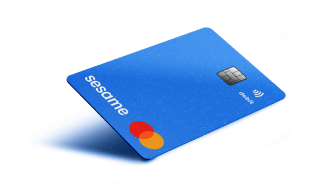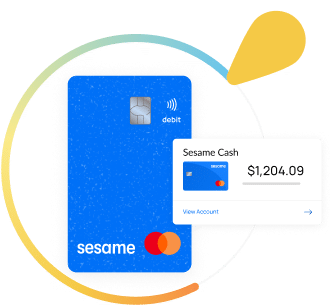- Credit Score
Get your free credit score
See your score right away and refresh it daily
Get your free Sesame Grade
The most complete view of your credit score
Get your free credit report summary
See the factors impacting your credit score
Get free credit monitoring
Establish or build credit history for free
Learn About Credit
Better credit is as easy as ABCGet a more comprehensive look at your credit score, see the factors behind the numbers, and follow clear actions to reach your goals. - Credit Cards
All credit cards
See cards based on your chance of approval
Find credit card offers with a high chance of approval. Save time, avoid negative marks, and find the right card for you.
- Loans
Car loans
Looking for a new loan? We can help.
See what your credit score can unlock for you. Check your score in seconds and browse available offers.
- Digital Banking
Sesame cash
Pre-paid debit card
A digital debit account that helps you save more money.
Credit builder
Build credit history with your daily debit purchases. No credit check required.
Build credit history with debit purchases
Looking to quickly build credit history? Get a Sesame Cash pre-paid debit card and enroll in credit builder. No credit check.
- Insurance
Life insurance
Learn ABOUT INSURANCE
Looking for insurance? We can help.
See what your credit score can unlock for you. Check your score in seconds and browse available offers.
- Learn
Credit & Credit Score
The latest on credit and credit score
Savings & Investments
Thoughts on savings and investments
Credit Cards
Credit cards in everyday life
Personal Finance News
Credit Sesame weekly news roundup


















